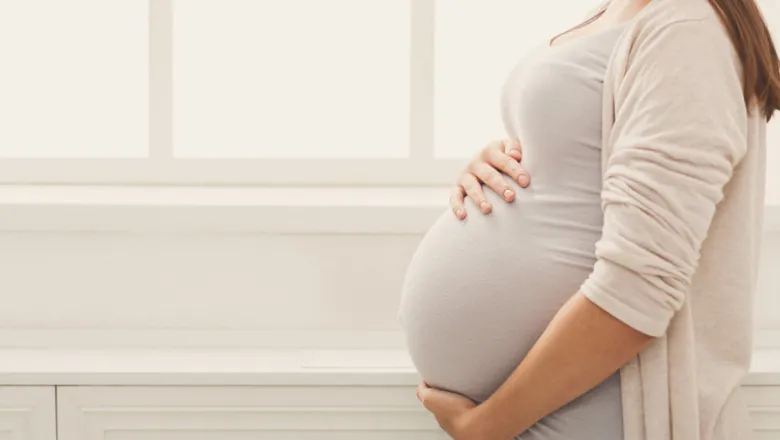Women who receive more virtual antenatal care during their second or third trimesters could experience poorer pregnancy outcomes, including higher risks of preterm birth, Caesarean sections and neonatal intensive care unit admissions, a new study suggests.

Increased virtual antenatal care in later pregnancy was also found to be associated with lower rates of early skin-to-skin contact with the newborn and fewer instances of breastfeeding as the first feed.
Led by King's College London and published in the American Journal of Obstetrics & Gynecology, the study looked at associations between virtual antenatal care and pregnancy outcomes in more than 34,000 pregnancies from a diverse, South London population, from periods before and during the COVID-19 pandemic.
Women were split into four groups, according to the proportion of virtual antenatal care appointments received during their pregnancy - low and stable virtual antenatal care throughout pregnancy, high first trimester virtual antenatal care, high second trimester virtual antenatal care, and high third trimester virtual antenatal care.
Pregnancy and birth outcome data were obtained from hospital records via the Early Life Cross-Linkage in Research, Born in South London (eLIXIR-BiSL) platform, funded by the UKRI Medical Research Council (MRC).
Analyses of the data revealed that, compared with those who received a low and stable proportion of virtual antenatal care throughout their pregnancy:
- Women who received a high proportion of virtual antenatal care in their second trimester experienced more premature births (before 37 weeks), labour inductions, breech presentation, and bleeding after birth; and
- Women who received a high proportion of virtual antenatal care in their third trimester had more premature births (before 37 weeks), elective or emergency Caesarean sections, and neonatal intensive care unit admissions; as well as lower rates of third- or fourth-degree vaginal tears, early skin-to-skin contact with the newborn and fewer instances of breastfeeding as the first feed.
During the COVID-19 pandemic, the use of virtual antenatal care increased, to limit face-to-face contact and prevent spread of the SARS-CoV-2 virus. While research has looked at the experiences of women and healthcare providers receiving and delivering virtual care, fewer studies have focused on the impact of virtual antenatal care on pregnancy outcomes.
Our work adds an important perspective to the growing evidence base on virtual antenatal care, suggesting that the timing of its use during pregnancy may influence pregnancy outcomes.
Dr Katie Dalrymple, Lecturer at King's and first author of the study
The findings build on an earlier study by the team, which found that virtual maternity care during the COVID-19 pandemic was linked to higher NHS costs - with each 1% increase in virtual antenatal care associated with a £7 increase in maternity costs to the NHS.
In addition to the cost implications of virtual care, the findings from the new study suggest that virtual antenatal care could come with increased risks to mother and baby. The authors conclude that careful consideration may be needed to minimise these risks before using virtual antenatal care in future health system shocks or to replace face-to-face care.
Our study findings suggest the need for careful integration of virtual care in maternity services, to minimise potential risks.
Professor Laura Magee, Professor of Women's Health at King's and co-senior author of the paper
The research was supported by the National Institute for Health and Care Research (NIHR).






